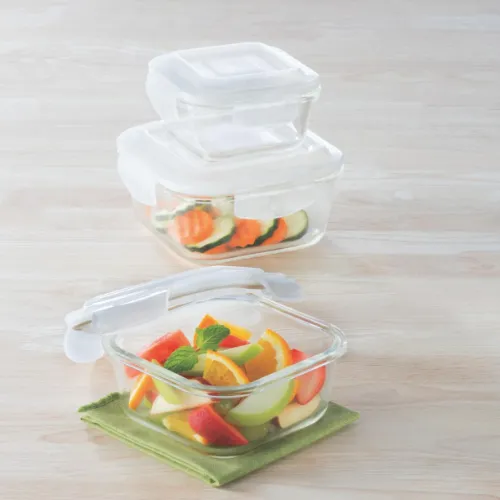Borosil: The story of how a family business became one of India’s most loved brands, clocking Rs 635 Cr turnover
A low-cost manufacturing approach allowed Mumbai-based family business Borosil to diversify beyond its laboratory glassware products. Today, it is a complete consumer lifestyle brand, with a large product range of serving ware, kitchen appliances, kitchenware, etc.
No sooner had Shreevar Kheruka joined his family business, it plunged into a financial crisis. Almost overnight, the Maharashtra government hiked electricity charges from Rs 4.20 per unit to Rs 7.50.
Electricity accounted for one-fourth of the costs at the Borosil Glass Works plant in Andheri, Mumbai. From being profitable, the Kheruka family-owned business quickly started making losses.
“The electricity costs were almost doubled in May 2006. The increase in cost was too high for our plant which produced glass tubes - a crucial raw material for end products. Attempts to increase production also didn’t work,” Shreevar tells SMBStory in an exclusive interview.

Shreevar Kheruka, Managing Director, Borosil
Having studied finance and entrepreneurship at the Wharton School of Business, Shreevar was determined to solve this crisis. He got on a plane and visited glass factories in the US, Europe, South East Asia and China to explore opportunities for importing raw materials.
After visiting over 100 factories, Shreevar identified suitable vendors from overseas markets to supply raw materials that Borosil sourced locally. Importing the raw materials allowed the company to reduce its cost of manufacturing to some degree.
However, something still had to be done about the steep electricity charges at Borosil’s plant.
“Rather serendipitously, we discovered an alternative site for the plant. In Gujarat, there was a piece of unused, family-owned land adjacent to our Bharuch plant. Deciding to move the plant there, we succeeded in selling off the Andheri real estate. The proceeds helped pay off debts and also infused much-needed capital in our business,” Shreevar explains.
New business model
The low-cost manufacturing business model at the new location pulled Borosil out of the crisis. Navigating the company through the predicament became a huge turning point for Shreevar and the Kheruka family.
In 2013, the new business model allowed them to diversify from a predominantly laboratory glassware company to becoming a complete lifestyle brand with a large product range such as serving ware, kitchen appliances, storage containers, hydration bottles, kitchenware, etc.
“We had realised that our brand value and trust built over the years was much higher than the turnover we were making. There was a mismatch between our earnings and the perceived brand value. Since we had a strong manufacturing model in place, we decided to become a completely customer-centric, consumer lifestyle brand,” he says.
It was this diversification that made Borosil a household name that it is today, and took its turnover to Rs 635 crore in 2018-19.

Borosil's Klip-n-Store square box
“Our consumer products division sells microwavable and flameproof kitchenware and glass tumblers. Our products have become almost synonymous with elegance, dependability, safety and ease of use. In the kitchenware segment in India, Borosil is a generic term for microwavable glassware,” Shreevar says.
Industrial manufacturing
Borosil isn’t all about kitchenware. Besides its consumer products, it makes scientific and industrial products, as well as solar glass.
Its Scientific and Industrial Products (SIP) division sells laboratory glassware, instruments, disposable plastics, liquid handling systems and explosion proof lighting glassware through its network of 150 dealers across the country.
“We have built a reputation of quality, accuracy, and dependability. All leading pharmaceutical companies, R&D labs, and scientific, health and educational institutions have been our loyal customers for the last 50 years. Our glass has found use in over 2,000 different products and applications, in areas as diverse as microbiology, biotechnology, photo printing, process systems and lighting,” Shreevar says with pride.
Its solar glass division Gujarat Borosil Ltd (GBL) is the first and only manufacturer of solar glass in India, he claims. It has set up a 150 tonne-per day, low iron, patterned glass furnace for the manufacture of high transmission glass used in the solar industry.
“Customers of this product include leading solar module manufacturing companies worldwide. This plant is the first and only of its kind in India, and has been developed specifically for the fast-growing solar industry,” he adds.
Legacy of six decades
Borosil’s SIP and GBL divisions are the legacy of the Kheruka family’s initial forays into industrial manufacturing. When Borosil was started in 1962, it was formed to acquire the undertaking of the Industrial and Engineering Apparatus Company.
Established in collaboration with Corning Glass Works, USA, the company began to sell products under the Borosil brand. The name was inspired by borosilicate glass, the company’s main product category.
Borosil also started using the Corning brand. Until 1988, Corning was the majority shareholder. That year, Corning divested its shareholdings, making the Kheruka family the majority owners of Borosil.
“We had a strong run of performance in the 2010’s, and were able to generate free cash flows from operations as well as non-core asset sales. In the last three or four years, we have invested over Rs 600 crore across different divisions to further expand our product portfolio and reach. Today, the Borosil group comprises two listed entities: Borosil Ltd and Borosil Renewables Ltd,” Shreevar says.
The Borosil group has seven manufacturing facilities located in Jaipur, Bharuch, Tarapur, Naashik and Pune. These units are owned by the company, and employ over 4,000 people. In addition to these, the company also buys some products from local and international vendors.
Product and retail

Borosil's Nutrifresh product range
The prices of its store and serve ware products starts from Rs 295, while its glasses are priced starting from Rs 435 for a set of six pieces. Its Larah dinnerware and kitchen appliances starts from Rs 1,000 and goes up, and its tiffin boxes are priced from Rs 500 onwards.
“Our target audience is diverse and collectively falls under the umbrella of the middle-income Indian households. We build on aspirational demand from households across different age-groups where they are looking at upgrading their lifestyles. We don’t limit ourselves only to a homemaker. We aim for contemporary, multitasking family members who need products and appliances to support them in doing more with less time, effort and resources,” he says.
Borosil built a strong presence through large-format stores and institutional sales, besides general trade. At present, it claims to have a network of around 15,000 retail outlets in general trade.
Despite being a traditional brick-and-mortar company for the most part of its lifespan, Borosil claims to be among the first in its industry to build its own ecommerce platform - www.myborosil.com. It also began retailing on Amazon, Flipkart and other ecommerce marketplaces, as well as building brand awareness through Facebook, Twitter, Instagram, and LinkedIn.
Shreevar says these mediums help Borosil gauge consumer feedback and response in a more direct and measurable way. “A lot of our backend is also digitised, helping to easily connect and monitor the supply chain,” he adds.
Market scenario and way forward
In 2017, it was estimated Borosil had captured 60 percent market share in both laboratory glassware and microwavable kitchenware segments. Although it is a market leader in glass products, its competition is with manufacturers of plastic and steel products.
Shreevar feels the only formula to stay ahead of the competition is to constantly innovate and create better products. He also maintains that with the rise in awareness of health and safety due to COVID-19, Borosil has a natural advantage.
“There is more awareness especially for products which come in contact with food. Due to the natural health and safety benefits of glass, we have an advantage. Our R&D team worked relentlessly so we can launch some highly relevant and innovative products. For instance, our latest offering Borosil Suraksha helps customers safely sanitise daily use items,” he says.
Shreevar admits the pandemic has had an “obvious and large impact on the business, both inside and outside.” Yet, he remains optimistic that the family business can tide over the crisis. “We have embraced technology in a big way through system upgrades, digital outreach, and marketing. We are also innovating on developing new products to better serve the current needs of our customers,” he says.
Edited by Javed Gaihlot








